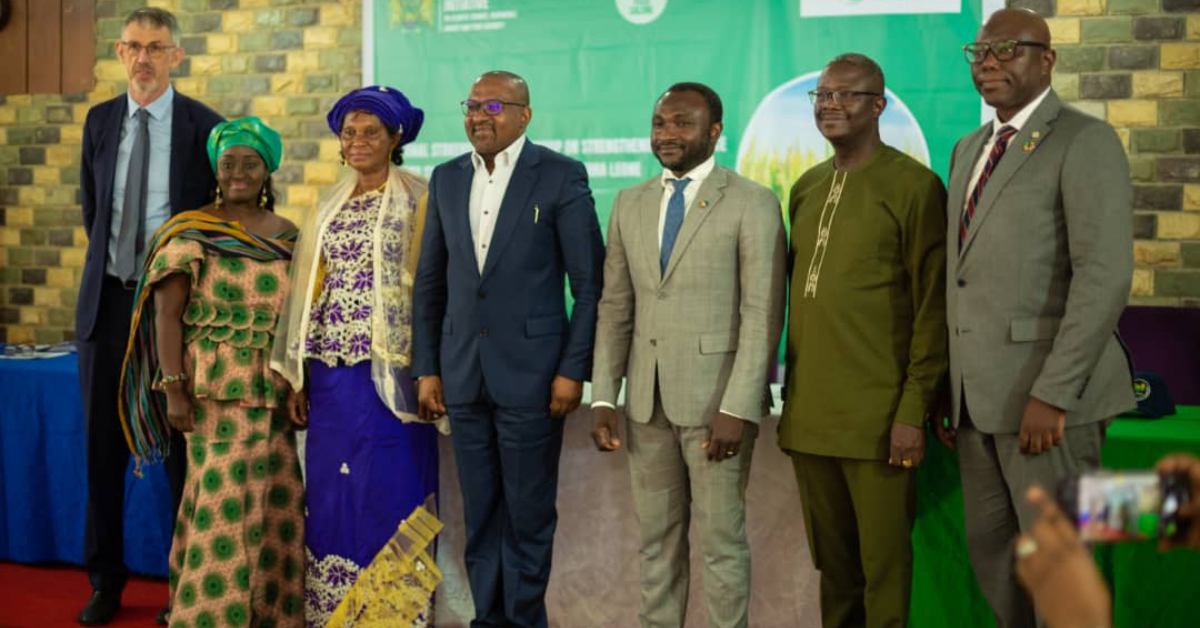The Presidential Initiative on Climate Change, Renewable Energy, and Food Security (PI-CREF) concluded a two-day National Stakeholders’ Workshop on Strengthening Resilience in Food Systems on Friday, September 13, 2024, at the Bintumani International Hotel.
The workshop, organized in collaboration with the Global Panel on Agriculture and Food Systems for Nutrition (GLOPAN), brought together key stakeholders from the agriculture and nutrition sectors to formulate a new vision for food system resilience in Sierra Leone. The event was part of President Julius Maada Bio’s commitment to addressing climate challenges and food insecurity in the country.
In his opening remarks, PI-CREF Chairman Hon. Dr. Kandeh Yumkella expressed appreciation for the participation of Vice President Dr. Mohammed Juldeh Jalloh and Minister of Agriculture Dr. Henry Musa Kpaka, highlighting the government’s priority on food system resilience. “We need to take actions from many angles to build climate resilience into our food systems,” Yumkella said, emphasizing the need for sustained efforts and collaboration across various sectors.
Vice President Jalloh, delivering the keynote address, stressed the urgency of transforming Sierra Leone’s food systems, noting the country’s heavy reliance on food imports. “This dependence affects the cost of living and exacerbates food insecurity,” Jalloh said. He outlined the government’s progress, including increased budget allocations to the Ministry of Agriculture, which rose from 2% to 7% under President Bio, and efforts to boost local food production.
“We have scaled up local production of onion, reducing imports, and cut rice imports by 33% over the past two years,” Jalloh stated. He reaffirmed that transforming food systems remains a top priority for the government.
Dr. Patrick Kormawa, Director of Climate-Smart Agriculture at PI-CREF, highlighted the objectives of the workshop, which included assessing food system resilience, identifying threats, and proposing policy and programmatic interventions.
Representatives from international organizations, including UNICEF, FAO, and the World Bank, praised the initiative, commending the government’s Feed Salone vision aimed at achieving sustainable agricultural transformation.
The workshop is expected to inform future policy actions as Sierra Leone seeks to enhance food security in the face of climate change.











